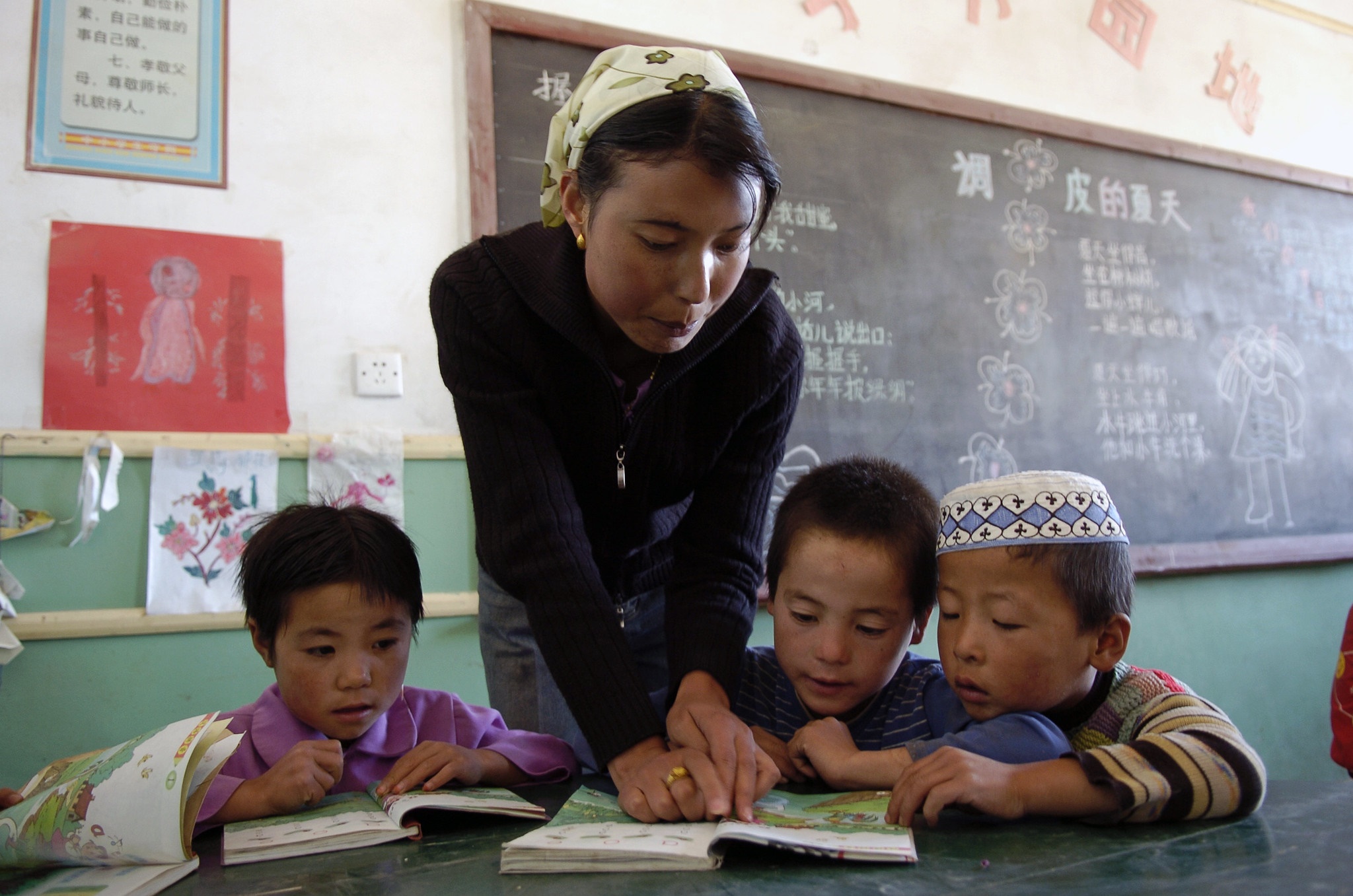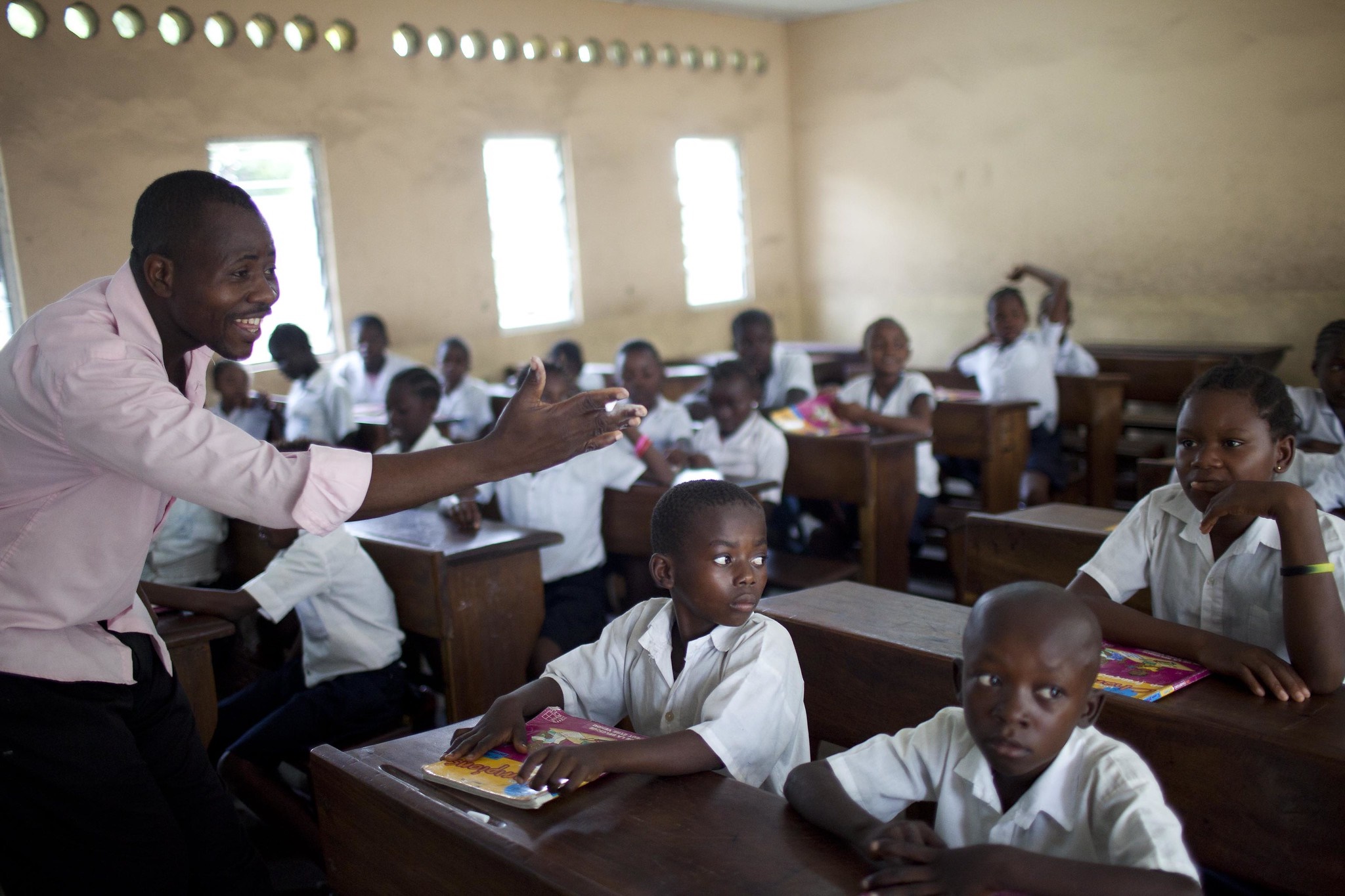Finland supports in-service teacher training in developing countries by funding World Bank’s Coach programme
The World Bank’s new Coach programme aims to improve learning outcomes by supporting teacher professional development (TPD) in developing countries. Finland supports the global part of the initiative and its piloting in Mozambique.

Today, most children in the world go to school. However, we are facing a global learning crisis because schools are not providing children with the necessary skills they need for their future.
The World Bank estimates that even before the COVID-19 pandemic, 53 per cent of children in developing countries could not read and understand a simple story by age 10. The pandemic and the school closures and financial difficulties caused by it have further aggravated the learning crisis.
Trained and skilled teachers are the single most important factor influencing learning. In order to achieve prompt results, it is important to develop in-service teacher professional development. Quality education that is accessible to all has been one of the most important factors contributing to sustainable development.
“In order to achieve better learning outcomes, we need to place a special focus on the teaching of such basic skills as reading, writing and counting. Teachers also need tools that give them ideas for planning lessons, guidance on interaction in the classroom, and support in assessing learning outcomes,” says Paula Malan, Senior Adviser for Education at the Ministry for Foreign Affairs.
Coach responds to the global learning crisis by supporting teachers
Coach lays special emphasis on the above-mentioned challenges. Its objective is to help partner countries in designing, implementing and evaluating high-quality in-service teacher professional development programmes, based on best practices and research results.
The programme develops both teachers’ individualised coaching and other forms of in-service teacher professional development, including group training, context-specific coaching in the classroom and teachers’ self-study. Effective in-service training must in all cases be based on these four guiding principles: 1) tailored, 2) practical, 3) focused and 4) ongoing.
On the one hand, the work involves preparing various tools and resources for partner countries, which, for example, provide advice on how to teach basic skills, to identify teachers’ professional development needs, to organise effective group coaching for teachers, or to assess the effectiveness of the existing in-service training system. On the other hand, when countries reform and develop their own in-service teacher training systems, they are given first-hand technical assistance in their own country.

The Coach programme is piloted in 2020–2024. After the pilot phase, materials and methods will be made more widely available to all developing countries. One of the pilot countries is Mozambique, where Finland has supported the development of the education sector for a long time. The Aprender + programme in Mozambique will be tested in two provinces for two years following the principles of the Coach programme. The objective is, among other things, to produce a set of quality instructions on how to teach reading and writing.
Quality education is one of the priorities of Finland’s development policy
Finland is known for its high-quality education system and its core element, highly educated and professional teachers. It is therefore natural to put priority on education also in development policy.
Finland’s objective is to improve access to quality primary and secondary education especially for girls and children and youth in the most vulnerable positions. Finland’s development cooperation is directed to support inclusive education systems, partners’ capacity to improve learning outcomes, and better learning and teaching practices and educational environments.
Teacher training is supported in several partner countries through projects carried out by higher education institutions and civil society organisations as well as through international organisations.
The World Bank is an important strategic partner for Finland, because it is the largest financier of the education sector in developing countries. Finland’s funding for the global part of the Coach programme and the pilot project in Mozambique totals EUR 5.5 million. Finland contributes to the programme not only funding but also Finnish expertise in in-service teacher training.
Nora Klami
The author works as Counsellor in the Unit for Development Finance and Private Sector Cooperation at the Ministry for Foreign Affairs.
